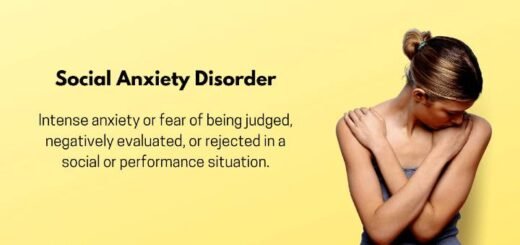Overcoming Social Phobia: Networking Tips for Kiwis
Networking events can be daunting for many, particularly Kiwis grappling with social anxiety effects. The pressure to engage in conversation and make lasting professional connections can feel overwhelming, leading to feelings of isolation and self-doubt. However, understanding and managing social anxiety effects is crucial in transforming these events into opportunities for growth and collaboration.
In New Zealand, where professional networking is essential, it’s important to arm yourself with effective strategies to navigate these situations confidently. By implementing practical tips and techniques, individuals can significantly reduce the impact of social anxiety and foster meaningful connections. For a deeper understanding of how to overcome social phobia in a work setting, explore this comprehensive guide for Kiwis: Overcoming Social Phobia at Work. Embrace the challenge, and turn networking into a rewarding experience.
Understanding Social Phobia and Its Impact on Networking
Social phobia, also known as social anxiety disorder, significantly affects many Kiwis when it comes to attending networking events. Individuals with social anxiety often experience overwhelming feelings of fear and embarrassment in social situations, which can hinder their ability to connect with others professionally. According to Social Phobia NZ, understanding the nuances of social anxiety effects is crucial for developing effective coping strategies.
In New Zealand’s professional landscape, networking events are vital for career advancement, yet they can be particularly daunting for those struggling with social phobia. The fear of judgment, making a mistake, or being unable to engage in conversations can lead to avoidance of these opportunities altogether. Recognizing that these feelings are common is the first step toward overcoming them. By acknowledging the impact of social anxiety on networking, individuals can seek tailored strategies to navigate these events more comfortably.
Preparing for Networking Events: Setting Realistic Goals
Preparation can significantly alleviate the anxiety associated with networking events. Setting realistic and achievable goals for each event is key. Instead of aiming to meet everyone or leave with a stack of business cards, consider setting a goal to engage in at least one meaningful conversation. This approach reduces the pressure and makes the event feel less overwhelming.
Before the event, research the attendees or speakers to find common interests. Familiarizing yourself with their work or background can provide conversation starters, which can ease anxiety. Additionally, practice introducing yourself and discussing your interests. Role-playing with a friend or family member can help build confidence and reduce the fear of unexpected interactions.
Remember, it’s perfectly normal to feel nervous. Embrace the idea that networking is a mutual exchange; others are just as eager to make connections. Recognizing that you’re not alone in this journey can help mitigate the effects of social anxiety.
Choosing the Right Networking Events
Not all networking events are created equal. For individuals with social phobia, selecting the right environment can make a significant difference. Smaller, more intimate gatherings often foster deeper connections and may be less intimidating than large conferences. Look for meetups or workshops within your industry, as these settings tend to encourage participation and discussion.
Consider joining local business groups or professional associations specific to your field. Many of these organizations offer networking events tailored to particular interests or professions, allowing for more focused interactions. In New Zealand, groups like the New Zealand Institute of Management often host events that create supportive environments for networking.
It’s also beneficial to attend events that incorporate structured activities, such as icebreakers or facilitated discussions. These formats can provide a framework that makes initiating conversation easier, reducing the burden of having to think of topics on the spot.
Utilizing Technology to Enhance Networking Opportunities
In today’s digital age, technology can be a powerful ally for Kiwis with social phobia. Online platforms like LinkedIn allow individuals to connect with professionals before attending in-person events, making the initial contact less daunting. Sending a message to someone you admire in your industry can pave the way for a more comfortable introduction at the event itself.
Additionally, many networking events now offer virtual options, which can be less intimidating for those with social anxiety. Participating in webinars or online meetups can help build confidence in engaging with others without the immediate pressure of face-to-face interactions. As you become more comfortable, transitioning to in-person events will feel more manageable.
Remember to take advantage of social media to follow up with new connections after events. Sending a simple thank-you message or sharing relevant articles can help solidify these connections and demonstrate your interest in maintaining relationships.
Developing Conversation Starters and Practice Techniques
Having a few conversation starters ready can significantly ease the anxiety of initiating dialogue at networking events. Think about questions that are open-ended and relevant to the context of the event. For example, ask about recent industry news or the person’s professional journey. This not only takes the pressure off you but also invites the other person to share their thoughts, making the conversation flow more naturally.
Practicing these conversation starters with friends or family can help increase your comfort level. Role-playing different scenarios can prepare you for various responses, making you feel more equipped to handle real-life interactions. Additionally, consider joining local public speaking or communication workshops, such as those offered by Toastmasters in New Zealand, to enhance your skills and boost your confidence.
Remember that conversations don’t always have to be perfect. The goal is to connect with others, share experiences, and learn from one another. Embrace awkward moments as part of the networking experience, and don’t hesitate to steer the conversation back on track if it veers off course.
Managing Anxiety During Networking Events
Even with thorough preparation, anxiety can still arise during networking events. Implementing management techniques can help you stay grounded. Deep breathing exercises are effective for calming nerves; practice inhaling deeply for four seconds, holding for four seconds, and exhaling for four seconds. This technique can be utilized before entering the venue or during moments of heightened anxiety.
Another helpful strategy is to utilize positive affirmations. Remind yourself of your strengths and the value you bring to the table. Phrases like “I am capable of making connections” or “I have valuable insights to share” can reinforce your confidence and help combat negative thoughts.
If you find yourself feeling overwhelmed, take a break. Step outside for fresh air or find a quiet corner to collect your thoughts. Acknowledge your feelings without judgment; it’s normal to experience anxiety in unfamiliar environments. By managing your anxiety proactively, you can focus on the opportunities for connection rather than the fear of social interaction.
Following Up: Turning Connections into Lasting Relationships
The networking process doesn’t end when the event concludes. Following up with new connections is vital for transforming initial interactions into meaningful professional relationships. A brief email or LinkedIn message expressing gratitude for their time and referencing a point from your conversation can leave a lasting impression.
Consider setting a reminder to connect with them again in a few weeks. Share relevant articles or invite them to another event, keeping the lines of communication open. Building relationships takes time, and consistent follow-up will demonstrate your genuine interest in maintaining the connection.
If you experience social anxiety effects during this process, remember that it’s okay to take things slowly. Focus on quality over quantity; building a few strong connections is more beneficial than trying to maintain numerous superficial relationships. By nurturing these connections over time, you can create a supportive network that contributes to your professional growth in New Zealand’s competitive landscape.
FAQs
What is social anxiety and how does it affect networking?
Social anxiety is a common mental health condition characterized by intense fear or discomfort in social situations. For many Kiwis, this can make networking events particularly challenging, as the pressure to engage with others can exacerbate feelings of self-doubt and fear of judgment.
How can I prepare for a networking event if I have social anxiety?
Preparation is key. Start by setting small, achievable goals for the event, such as initiating one conversation or exchanging contact information with two people. Familiarizing yourself with the event agenda and practicing conversation starters can also help ease anxiety on the day.
Are there specific strategies to overcome anxiety during networking events?
Yes, several strategies can help. Deep breathing exercises can calm nerves, while grounding techniques, such as focusing on your surroundings, can keep you present. Additionally, taking breaks during the event can help you recharge and manage overwhelming feelings.
What role does body language play in networking for those with social anxiety?
Body language is crucial in networking as it conveys confidence and openness. For individuals with social anxiety, practicing positive body language—such as maintaining eye contact, smiling, and standing tall—can help create a more approachable demeanor, which may lead to more comfortable interactions.
How can I follow up with new connections after a networking event?
Following up is essential for building professional relationships. Consider sending a brief email or LinkedIn message expressing your pleasure in meeting them and referencing a point from your conversation. This can help reinforce the connection and alleviate pressure for future interactions.
Are there any networking events specifically designed for people with social anxiety?
Yes, many organizations and communities offer networking events that focus on creating a supportive environment for individuals with social anxiety. Look for smaller, more intimate gatherings, or events that incorporate icebreakers and structured activities to facilitate conversation.
How can I keep my expectations realistic when networking?
Setting realistic expectations is vital, especially for those with social anxiety. Understand that not every interaction will lead to a meaningful connection, and that’s okay. Focus on the process of meeting new people rather than the outcome, and celebrate small victories along the way.
References
- Social Phobia New Zealand – A comprehensive resource for individuals dealing with social phobia, offering information and support for overcoming social anxiety in various situations, including networking events.
- How to Navigate Networking Events for People with Anxiety – An article from Psychology Today that provides practical strategies for managing anxiety during networking events.
- 10 Tips for Networking If You Have Social Anxiety – A Forbes article offering ten actionable tips specifically designed for individuals with social anxiety to effectively network.
- Networking with Social Anxiety – A guide from Verywell Mind that discusses coping strategies and techniques for networking successfully while managing social anxiety.
- Tips for Networking with Social Anxiety – Healthline provides helpful advice and techniques for individuals with social anxiety to navigate networking events with confidence.




